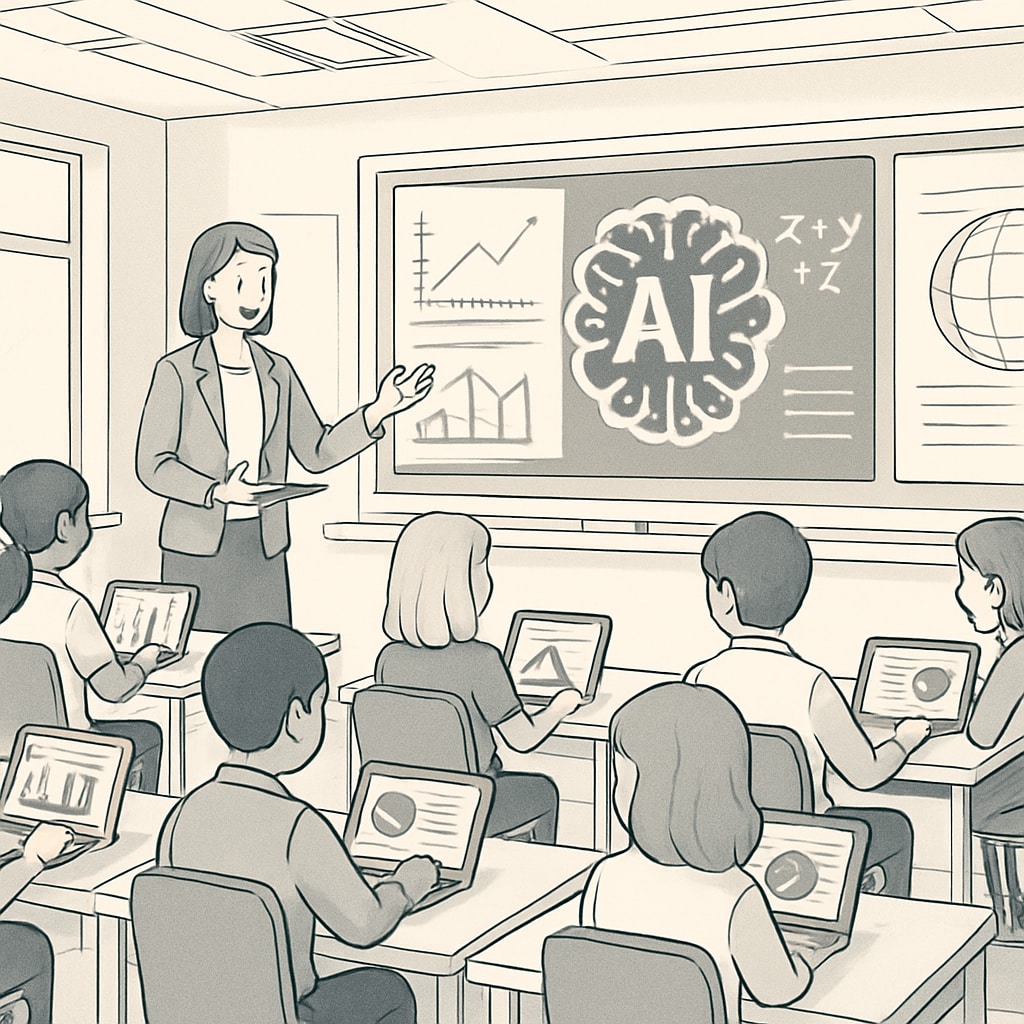Artificial intelligence education is set to redefine the K12 learning landscape, ushering in transformative education trends that promise a brighter future by 2030. From personalized learning experiences tailored to individual students to intelligent assessments that evaluate skills in real time, AI is revolutionizing the way we teach and learn. With advancements accelerating in machine learning and data analytics, the education sector stands on the brink of a smart revolution that will benefit students, educators, and institutions alike.
The Evolution of AI in K12 Education
AI’s integration into education has already begun reshaping traditional methods. In particular, personalized learning systems powered by AI are enabling customized lesson plans that adapt to each student’s pace and learning style. For example, platforms like Khan Academy use AI-driven algorithms to recommend content based on a student’s progress. This approach not only enhances engagement but also ensures that no learner is left behind.
Moreover, intelligent tutoring systems are becoming a popular alternative to one-size-fits-all teaching. These systems use natural language processing (NLP) and predictive analytics to simulate one-on-one tutoring experiences, providing instant feedback and guidance. By 2030, it is expected that AI will make such systems more accessible, further democratizing education globally.

Key Trends Driving the AI Revolution in Education
Several trends are taking shape as AI continues to evolve within the educational sector:
- Adaptive Learning Platforms: These platforms analyze student data to tailor content in real time, ensuring optimal comprehension and retention.
- Automated Grading Systems: AI tools are streamlining the assessment process, providing teachers with more time to focus on student development.
- Virtual Reality (VR) Integration: AI-powered VR tools are creating immersive learning environments that enhance understanding of complex concepts.
- Ethical AI Use: As AI becomes more prevalent, ethical considerations regarding data usage and bias in algorithms will shape its adoption.
These trends demonstrate AI’s ability to address longstanding challenges in education, such as resource limitations and standardized learning approaches. As a result, schools are beginning to leverage AI to create more equitable and effective learning ecosystems.

Challenges and Opportunities in AI Adoption
While AI offers immense potential for transforming K12 education, its adoption is not without challenges. For instance, concerns about data privacy and algorithmic bias must be addressed to ensure fair and secure implementation. Additionally, educators require comprehensive training to integrate AI tools effectively into their teaching methodologies.
However, the opportunities far outweigh the challenges. AI can improve educational access in underserved regions, reduce teacher workload, and foster a more personalized approach to learning. As a result, by 2030, we can expect technology-driven classrooms where AI plays a central role in shaping student outcomes and preparing future-ready graduates.
The Road Ahead: What to Expect by 2030
Looking toward 2030, the trajectory of AI in K12 education suggests a future where classrooms will be smarter, more inclusive, and highly adaptive. Some anticipated developments include:
- Universal Access to AI Education Tools: Governments and organizations will invest in making AI-powered platforms accessible to all students, regardless of socioeconomic background.
- Advanced AI-Powered Curricula: AI will enable dynamic curricula that evolve based on emerging skills and industries.
- Global Collaboration: AI will facilitate cross-border educational projects, linking classrooms globally and fostering cultural exchange.
As a result, AI will not only transform individual classrooms but also redefine the global education system, paving the way for innovative learning models that meet the demands of the 21st century.
In conclusion, artificial intelligence education is poised to be a driving force behind transformative education trends and a brighter, smarter future by 2030. The intelligent revolution in K12 classrooms is not just a possibility—it’s already underway.
Readability guidance: This article uses concise paragraphs, active voice, and clear transitions. Key points are summarized in lists wherever possible, ensuring easy comprehension and accessibility.


